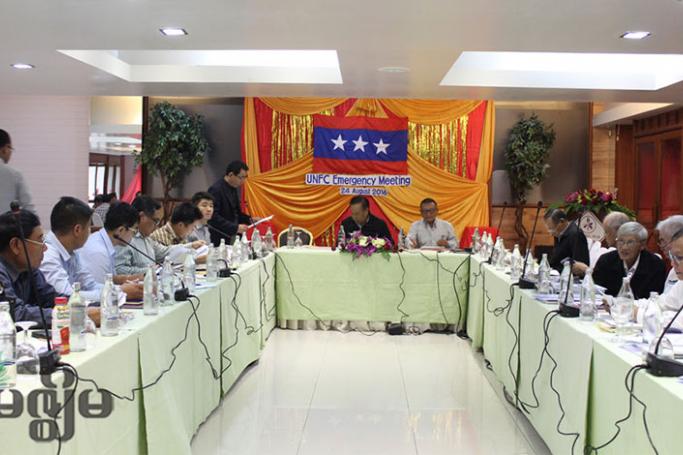Bangkok, Aug 26 (efe_epa). - The United Nationalities Federal Council (UNFC), an alliance of eleven ethnic minority guerrilla groups in Myanmar, announced it will take part in next week's peace conference convened by the government.
UNFC took the decision Thursday night during a meeting at Chiang Mai in northern Thailand, following a meet with Burmese authorities to set the framework for discussions, according to news portal The Irrawaddy.
De facto Burmese leader and driving force behind the initiative, Aung San Suu Kyi, had proposed the talks should focus on political and security matters, but the minorities also wanted to discuss social and economic issues, besides issues related to land and natural resources.
Members of the UNFC include the Kachin Independence Organization, whose armed wing has 10,000 fighters and that has been involved in clashes with the army in northern Myanmar since 2011, after a 17-year-long ceasefire broke down.
Other members of the alliance include three of the eight groups that on Oct. 15, 2015 signed an armistice with the previous government, which unsuccessfully attempted to reach a national level ceasefire before initiating a formal peace process.
Meanwhile, the participation of three other outfits, belonging to the Kokang, Ta'ang and Rakain minorities, is not confirmed as yet.
The conference, set to begin on Aug. 31, aims to resolve the armed conflict in the country, some of which have been dragging on since the country got independence in 1948.
UN Secretary General Ban Ki-moon will also participate in the five-day meet that is set to bring together 1,800 delegates from the government, political parties and guerrilla groups, besides observers from the diplomatic corps, the UN and other international organizations.
Greater autonomy is the main demand of nearly all ethnic minorities in the country, including Chin, Kachin, Karen, Kayah, Mon, Rakain and the Shan communities, who together represent over 30 percent of the country's 53 million population.
You are viewing the old site.
Please update your bookmark to https://eng.mizzima.com.
Mizzima Weekly Magazine Issue...
14 December 2023
Spring Revolution Daily News f...
13 December 2023
New UK Burma sanctions welcome...
13 December 2023
Spring Revolution Daily News f...
12 December 2023
Spring Revolution Daily News f...
11 December 2023
Spring Revolution Daily News f...
08 December 2023
Spring Revolution Daily News f...
07 December 2023
Diaspora journalists increasin...
07 December 2023
Euromoney Myanmar Global Investment Forum begins in Nay Pyi Taw












